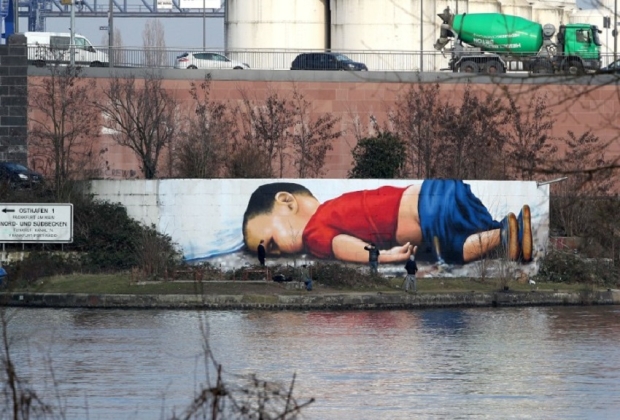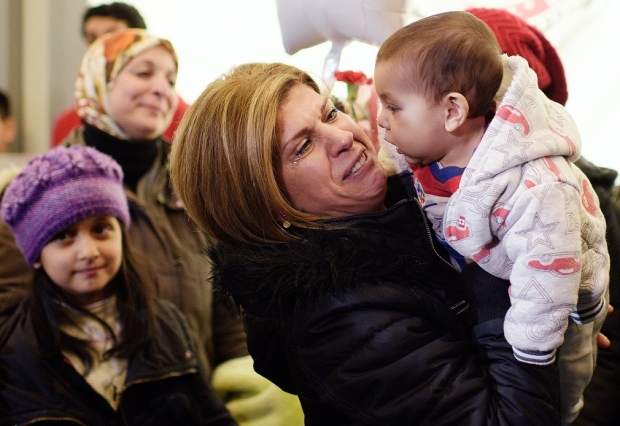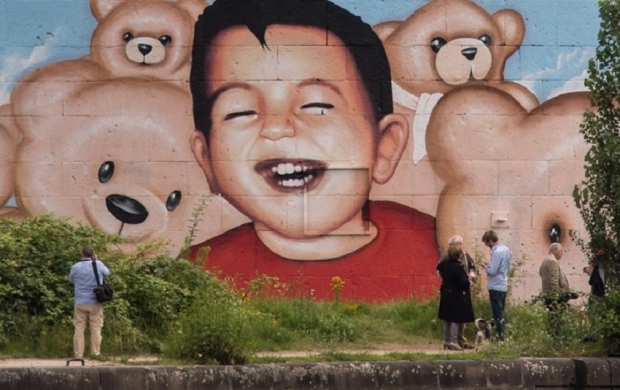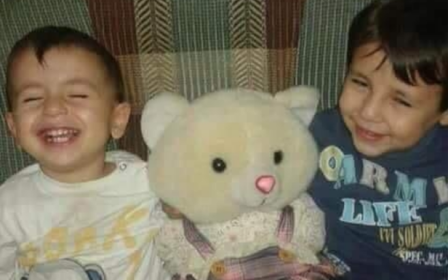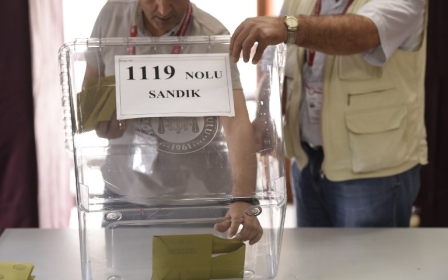'The boy on the beach': My family’s escape from Syria and our hope for a new home
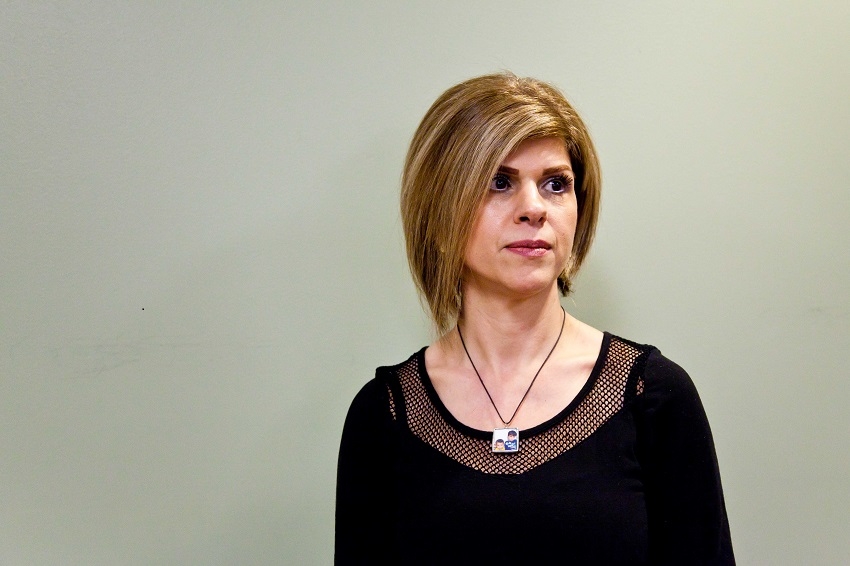
On 1 September 2015, Tima Kurdi spent the day anxiously waiting to hear from her brother Abdullah, who was making his latest attempt with his family in tow to brave the Mediterranean sea by boat and cross from Turkey to Greece - but she never heard from him.
The next morning, on 2 September, she woke up at about 5am to an onslaught of missed calls from family members. “Why were they all calling me at the same time? I was shaking, and I could feel my pulse racing," Tima writes.
After a few attempts, she managed to get through to her sister-in-law Ghouson, the wife of Tima’s oldest brother, Mohammad.
“‘Wlad Abdullah w Rehanna mato’ - ‘Abdullah’s kids and Rehanna died,’ she wailed.”
Tima fell to the floor and started to scream. "I slapped my face and pulled at my hair. I wanted to hurt myself.
In early September 2015, little Alan, his four-year-old brother Ghalib, and the boys’ mother Rehanna drowned while trying to cross by sea from Turkey to the Greek island of Kos in an overcrowded boat that capsized.
It’s very important to share the story because I believe my family is no different than anybody else. And our story is just one of many
- Tima Kurdi
It hasn't been an easy process for Tima, who tells Middle East Eye that she began writing the book in August 2016, a month before the first anniversary of the drownings.
"After the tragedy, I was like a ghost in my own home. I didn’t talk to my family, my husband, my son. I didn’t know anything. Some things happened like our wedding anniversary," she says. "A few days later I looked at my husband and I said “How many years is that?” “Twelve,” he said. “Did I miss the 10th anniversary?” I asked."
Pegged to the photo of Alan, face-down on the beach, the book tells the story of a shattered Syrian family. It is a powerful appeal for a better life for themselves and their compatriots.
"Writing it was a healing process for me, even though putting my words, my feelings and my tears, and what happened into that book was really hard. But, it’s very important to share the story because I believe my family is no different than anybody else. And our story is just one of many," she says.
Collective consciousness
The photograph of Alan’s body on the shore, which went viral, tragically thrust the plight of Syrian refugees into our collective consciousness. No longer could we look away or pretend we did not know.
“When you saw the photograph of that little boy, my dear nephew Alan, dead on a faraway shore,” writes Tima Kurdi, “you became part of our family.”
Tima explains how dismayed she was that the photo was sent around the world before next of kin were properly notified.
I sometimes felt that I couldn’t breathe. It felt like someone was choking me
- Tima Kurdi
“To this day, it makes me sick to think about that photograph of Alan, even though I carry it with me everywhere I go. It is burned into my mind and tattooed onto my heart. It’s impossible to describe exactly how it struck me in that first moment," she writes.
Tima says that while she was doing publicity tours for her book across Canada, the memories of that day and the emotional pain were sometimes too hard for her to bare.
"I sometimes felt that I couldn’t breathe. It felt like someone was choking me. It felt like the end of my life. I tried to work on myself," Tima tells MEE.
‘I’m still lost at sea’
Tima immigrated to Canada from Syria in the early 1990s through an arranged marriage that later failed. Living in a prosperous suburb of Vancouver, Tima partly blames herself for the deaths of Alan, Ghalib and Rehanna.
A hair stylist by profession, she writes candidly in the book about how she pressured Abdullah and his family to attempt the risky sea route to Greece, “the only country in the region from which refugees could get to the few northern European countries accepting Syrian refugees”.
She recalls her nagging phone calls and text messages to Abdullah in the weeks leading to the family’s bid to leave Turkey. Like a sodden blanket, her guilt is made heavier because Tima and her second husband, Rocco, provided Abdullah with money to pay the smugglers.
“I’m still lost at sea, drifting,” she writes. “Sometimes I float. Other times I sink like a stone and drown.”
Back in Canada, Tima had attempted to navigate the country’s refugee sponsorship system in favour of bringing both Abdullah’s family and that of her older brother, Mohammed, to Canada. With Abdullah’s case bureaucratically hopeless - among other factors, his Syrian passport had expired - Tima focused on sponsoring Mohammed and his family.
In Canada, the photograph unleashed a groundswell of sympathy for displaced Syrians that Tima suggests hampered the then-Conservative government’s bid for re-election.
Chris Alexander, the Conservative government’s former minister of immigration, later met with Tima to say he was sorry for her family’s loss.
“He [Chris Alexander] said that my family’s tragedy caused his party to lose the election,” Tima writes.
Every single family from Syria, they all have a scar in their heart
- Tima Kurdi
Tima heightens the reader’s awareness of the misery that the Syrian conflict inflicted on her family and millions of other innocent civilians.
“Every single family from Syria, they all have a scar in their heart,” Tima tells MEE. “They are traumatised.”
She explains in her book that Abdullah and his family had risked everything to flee war-torn Syria and abject poverty in neighbouring Turkey while seeking a safe and secure home.
She lashes out at the seeming indifference of world leaders of all political stripes who she contends haven’t done enough to end the war or adequately respond to the humanitarian crisis spawned by it.
“We are not animals,” she writes in the book. “We are human beings, just like you.”
Amid an international outcry of grief as the image of young Alan went viral, Tima and Abdullah, Alan's father, became advocates for the millions of Syrians displaced by civil war in their homeland.
Following the tragedy, they launched the Kurdi Foundation, an organisation founded to honour the memory of Alan, Ghalib and their mother Rehanna with the aim of raising money to help distribute “nutritious meals, clothing, and medicine to youth in refugee camps,” according to their website.
An idyllic life
The numbing loss of Alan contrasts sharply with the idyllic life that Tima, her parents and siblings had in Damascus, the Syrian capital, where she grew up.
They were “a regular, middle-class family, perhaps no different from yours,” living in what she describes as a tolerant, multi-ethnic neighbourhood, she writes in the book.
Her father, also named Ghalib, “had an open-door policy for anyone in need of a good meal and a place to sleep,” she writes. Although Tima and her sister complained about cleaning up after strangers, they embraced their father’s motto: “Never close your hearts or your door to people in need.”
Keeping the door unlatched for strangers would become more problematic as the war intensified. Charity became scarce as the conflict scattered members of the extended Kurdi family across Syria, Turkey and Western Europe.
“If you are not a wolf, the wolves will eat you,” became a common mantra among Syrians, Tima writes.
Abdullah, Alan's father, who has remarried, now lives in Erbil in a townhouse provided by the Kurdistan Regional Government, but according to Tima, he is still struggling to cope with his loss.
"The tragedy, for a father to lose his entire family, is the worst thing that could happen to anyone," she tells MEE.
‘I will never stop writing’
What makes The Boy on the Beach work is Tima’s commitment to sharing the narrative of her family’s journey in the context of the war, and how the photograph impacted people around the world. In the process, her family’s tragedy reminds us that despite our cultural differences, we have more in common with the displaced than we may realise.
In the wake of publishing the book, which is her first, Tima says she is considering writing another one about her experiences helping children in refugee camps in Turkey and Lebanon through the Kurdi Foundation,
“I will never stop writing,” she tells MEE.
As the third anniversary of the loss of Alan, Ghalib and Rehanna nears, it is clear that Tima is still processing the tragedy. In the backyard of her home in Canada, she says she befriended a pair of birds with grey and orange feathers.
“When I was depressed and feeling crazy while I wrote The Boy on the Beach, I felt like they were the only friends I had,” she says in the interview. “I believe they are Alan and Ghalib.
Time explains that "it sounds crazy, but when you’re depressed, anything is possible to heal yourself.”
“I talk to them, and then I think if my neighbour sees me talking to the birds, she’ll think I’m crazy,” Tima adds. “I told them to fly away to my brother, Abdullah. ‘Go to your Dad,’ I said. ‘Go heal him.’"
This article is available in French on Middle East Eye French edition.
Middle East Eye propose une couverture et une analyse indépendantes et incomparables du Moyen-Orient, de l’Afrique du Nord et d’autres régions du monde. Pour en savoir plus sur la reprise de ce contenu et les frais qui s’appliquent, veuillez remplir ce formulaire [en anglais]. Pour en savoir plus sur MEE, cliquez ici [en anglais].


